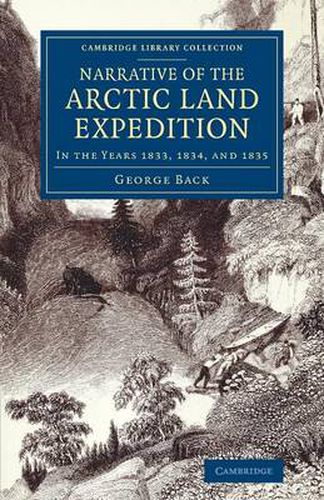Readings Newsletter
Become a Readings Member to make your shopping experience even easier.
Sign in or sign up for free!
You’re not far away from qualifying for FREE standard shipping within Australia
You’ve qualified for FREE standard shipping within Australia
The cart is loading…






John Ross had disappeared while exploring the Northwest Passage in 1829. A lieutenant in the Royal Navy, George Back (1796-1878) had already served with John Franklin on two Arctic expeditions in 1819-22 and 1824-26. He volunteered to lead an expedition to find Ross, setting out in 1833. When Ross returned safely in 1834, Back continued his explorations down the unknown Great Fish River and mapped the Arctic coast westwards, travelling some 7,500 miles in total. Valuable observations on weather, geology, entomology, magnetics and aurora are included as appendices in this 1836 publication. Engravings of Back’s own illustrations further enhance the narrative. Although described by some as an opportunist and a weak leader, Back was greeted as a hero on his return and awarded the gold medal of the Royal Geographical Society. The success of this expedition enabled him to head back to the Arctic in 1836.
$9.00 standard shipping within Australia
FREE standard shipping within Australia for orders over $100.00
Express & International shipping calculated at checkout
John Ross had disappeared while exploring the Northwest Passage in 1829. A lieutenant in the Royal Navy, George Back (1796-1878) had already served with John Franklin on two Arctic expeditions in 1819-22 and 1824-26. He volunteered to lead an expedition to find Ross, setting out in 1833. When Ross returned safely in 1834, Back continued his explorations down the unknown Great Fish River and mapped the Arctic coast westwards, travelling some 7,500 miles in total. Valuable observations on weather, geology, entomology, magnetics and aurora are included as appendices in this 1836 publication. Engravings of Back’s own illustrations further enhance the narrative. Although described by some as an opportunist and a weak leader, Back was greeted as a hero on his return and awarded the gold medal of the Royal Geographical Society. The success of this expedition enabled him to head back to the Arctic in 1836.